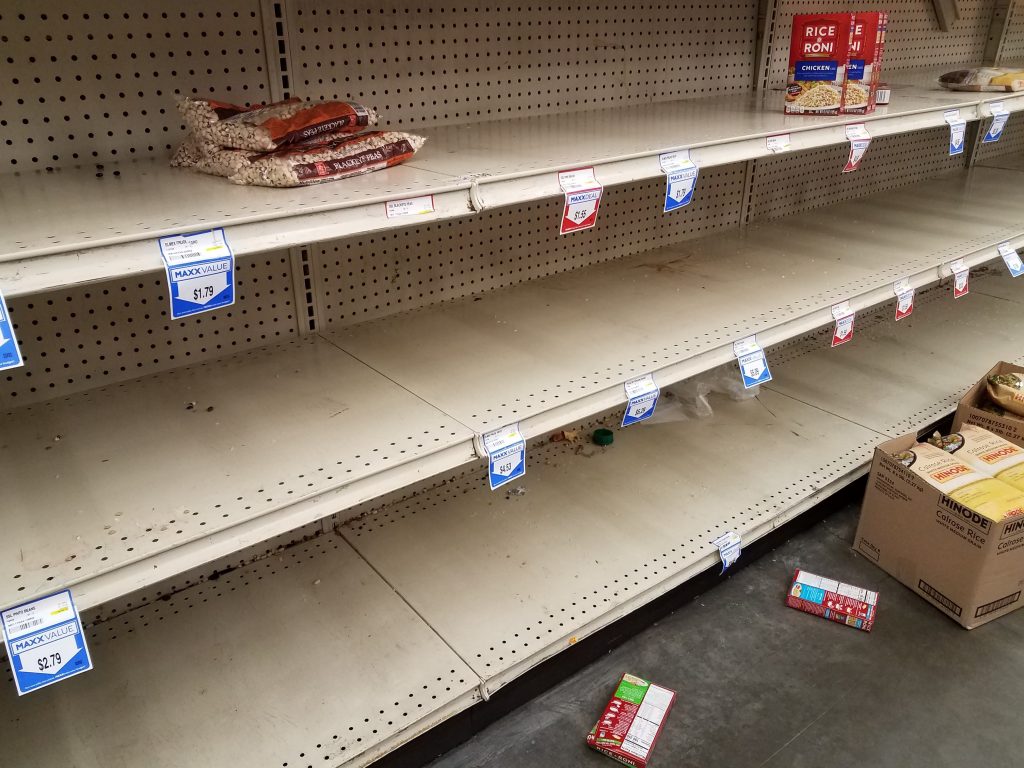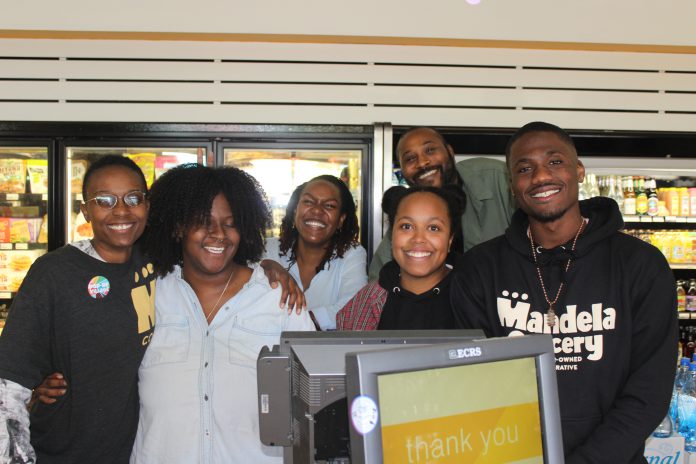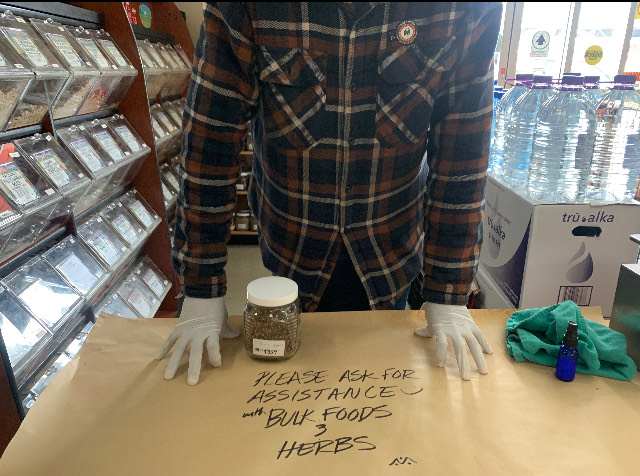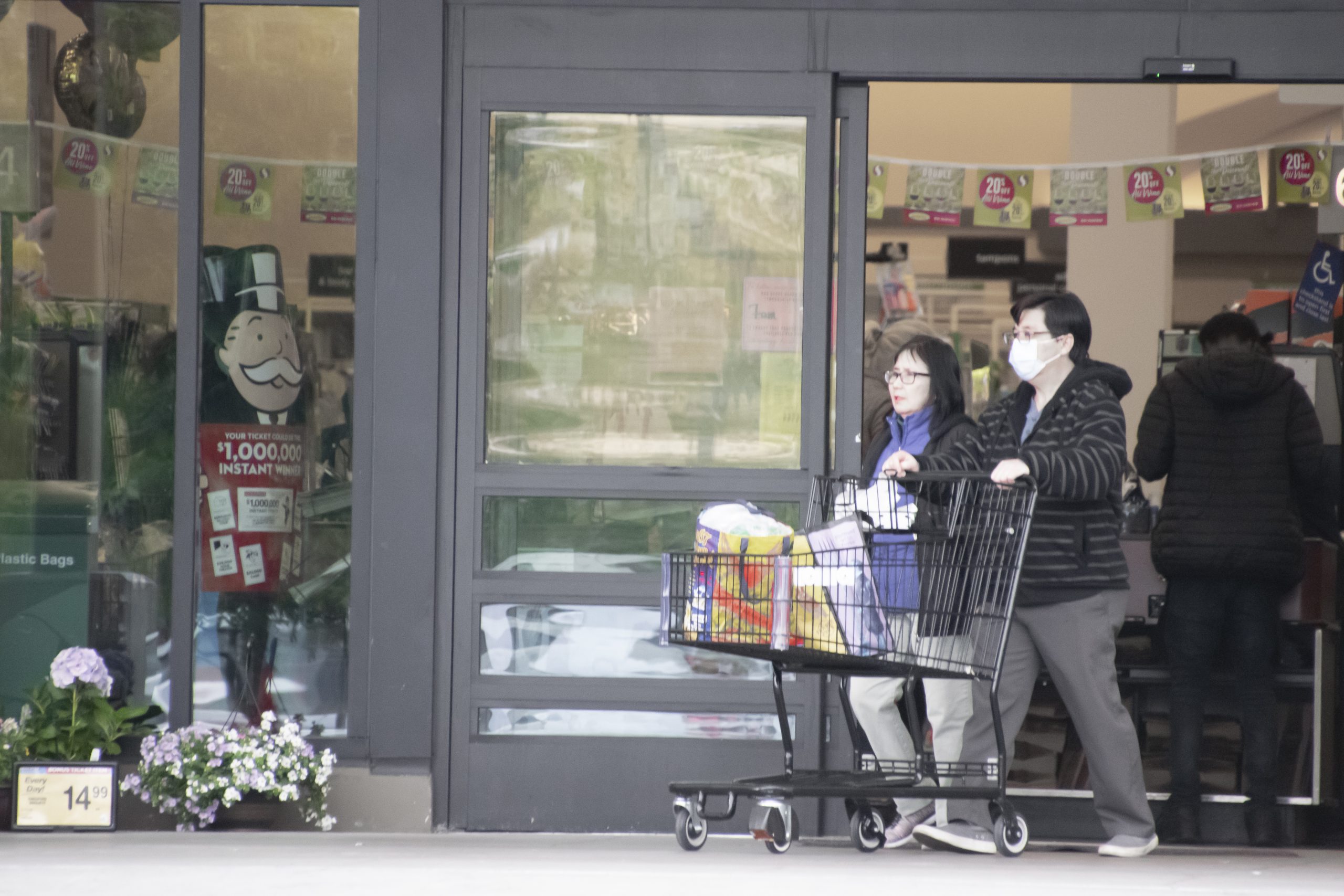As the COVID-19 pandemic spreads and the state of California has instructed residents to “shelter in place,” Oakland’s grocery store workers say their jobs have become more difficult and dangerous, but also more satisfying and meaningful.
“All of a sudden working in a grocery store has turned into something almost altruistic,” said Malcolm Stuart, who’s worked at Trader Joe’s on Lakeshore Avenue for over four years. “You’re providing for people when the smart thing to do is just to stay away and go home.”
Even under normal circumstances, Stuart describes his job as “a grind.” He’s on his feet and using his hands all day while interacting with hundreds of people in a patient and pleasant manner.
“By the end of the day there’s just a physical and emotional depletion,” said Stuart.
Despite the difficulties, Stuart said there’s things he loves about his job. He values “working on an intimate level with people and their food” and says he appreciates the interesting interactions he has with strangers. He also likes the people he works with, saying, “we all very much have a sense of being in it together.”
COVID-19 has made an already difficult job more difficult. The virus is extremely contagious and experts urge everyone to limit in-person social interactions and stay six feet away from each other. But working in a grocery store means interacting with hundreds of people, and operating a register means being within 6 feet of other people. So grocery store workers now risk contracting the cornavirus every day, which taxes their mental health.
“It feels very unsafe,” said Stuart. “You need to defend yourself against this virus with gloves and sanitizer constantly.”
While grocery store workers wear gloves and many are beginning to wear masks, they touch things constantly that others are touching, with currency being especially dangerous. Touching your face with even a gloved hand in such an environment is dangerous, but also difficult not to do, as studies show most people touch their faces over 15 times an hour.
In the days preceding and following the “shelter in place” orders, Stuart said the store was especially crowded, more so than he’s ever seen before. At times the store ran out of staples, like canned beans. But Stuart said that most customers have been more patient and understanding since the COVID-19 pandemic started.

Stuart’s partner, Isabelle, who asked to be identified only by her first name, works in a different grocery store: the Whole Foods near Lake Merritt. They’ve been mostly staying away from each other for fear of exposing each other to the virus, visiting each other briefly and occasionally but maintaining a 6-foot distance.
“I’ve never felt more pride about working in a grocery store but at the same time there’s a lot of anxiety,” said Isabelle,, who grew up in Oakland and has worked at Whole Foods since 1999.
Isabelle works as an order writer for the nutrition and body care lifestyles department and said many of the immune defense products at Whole Foods are selling out. She’s also worked as a customer service supervisor and a cashier.
Like Stuart, Isabelle also said the days before and after the “shelter in place” order had bigger crowds than she’s ever seen before, which concerned her because of the risk of infection. Since then both Whole Foods and Trader Joe’s have started limiting capacity.
Isabelle thinks there are also things customers can do to make the situation safer and less difficult for her and other workers.
“I’ve had to tell a number of customers to keep a safer distance,” she said.
She suggests customers talk louder instead of coming near workers.
Isabelle also said she’d appreciate it if customers were “a little more self sufficient.” Isabelle and Stuart both said that if they’re asked where a product is they’re expected to walk customers to it, which distracts from other tasks. While they’re willing to help, Stuart suggests customers look around a little bit to find what they want before asking a worker. Isabelle suggested reading the signs on the aisles.
Stuart said that, if they’re able, customers should also bag their own groceries. He said it becomes exhausting if several customers in a row don’t bag. Bagging your own groceries also reduces the chance of coronavirus transmission.
Isabelle and Stuart say another thing customers can do to make their jobs less stressful, which many are already doing, is to express gratitude.
“The customers have been really gracious and they do appreciate us being there,” Stuart said.
Since big stores like Trader Joe’s and Whole Foods have been crowded and running out of products, more customers have been shopping at small grocery stores.

“We have a lot of food in stock compared to other stores,” said Adrionna Fike, a worker/owner at Mandela Grocery Cooperative, a Black-owned small grocery store in West Oakland.
In the days following the “shelter in place” order, Fike said there were crowds bigger than she’d ever seen in her eight years working there. Much of the store was cleared out, including all produce and dairy. But Fike said that since then, here have been no mega-crowds and they’ve been mostly able to keep the store stocked.
As a cooperative, Mandela’s power structure is horizontal, which Fike said allows them to be more efficient and restock items faster. If a product is sold out, workers in the store can simply order more. Calling the manager is not necessary.
“Where we’re shining now is the size of our store and our customer service,” said Fike.
Fike also said that bigger stores usually have products placed in ways that force you to wander around and encounter more products. Since Mandela isn’t arranged that way, it’s easier for customers to get out of the store quicker, which makes it less likely that people will spread COVID-19.
Like Isabelle and Stuart, Fike has also appreciated a lot of the praise and thanks that customers have shared with her. She’s also grateful for a recent surge in donations to Mandela’s “Karma Jar,” a jar where customers can donate money for others who can’t afford groceries.
Fike said the work has become more fast paced and challenging lately, but the situation has also been “highly motivating.”

The store has prioritized worker/owner health. Fike said she and other co-workers have used mental and emotional health resources that some customers have been able to provide.
“We’re definitely working longer and harder hours but we’re also fit,” said Fike. “So physically we’re able to handle it.”
Fike also said she thinks she and her co-workers are “spiritually fit” as well. She said most of them pray and chant to ground themselves during many of their brief hand-washing breaks. They have also been closing Mandela an hour earlier than usual, in part to ensure workers get enough sleep.
“While we’re doing the work we’re also prioritizing relaxation as a group. It sounds like a contradiction but it’s not,” said Fike. “We understand our immune system is compromised when we’re stressed.”

Poet, journalist, substitute teacher writing mostly about homelessness.


